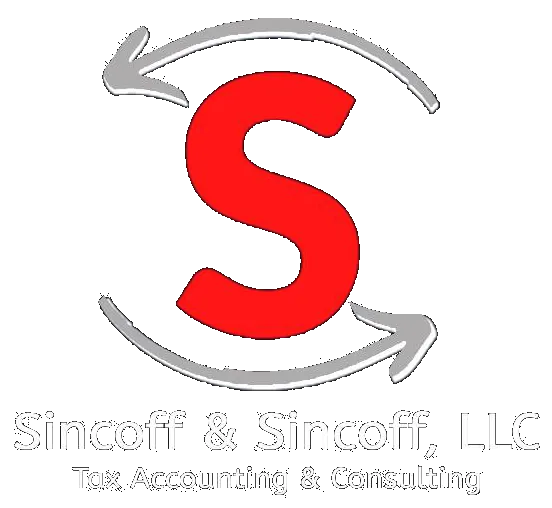Accurate profit and loss analysis is the cornerstone of financial success for businesses, and expert bookkeeping in New Jersey plays a vital role in achieving this precision. In a state with a dynamic and challenging business environment, maintaining accurate financial records is not just a compliance necessity but also a strategic advantage.
Expert bookkeeping by our team at Sincoff & Sincoff will ensure that every financial transaction is recorded, categorized, and reconciled correctly, providing business owners with a clear and comprehensive view of their financial health. This detailed tracking is essential for creating precise profit and loss (P&L) statements, which serve as a roadmap for understanding revenue streams, controlling costs, and identifying growth opportunities.
In New Jersey, where businesses face unique challenges like high taxes and stringent regulatory requirements, expert bookkeeping becomes even more critical. A well-maintained P&L statement helps businesses uncover trends, streamline operations, and make informed decisions to stay competitive. Additionally, accurate bookkeeping is the foundation for effective tax planning. By keeping meticulous financial records, businesses can maximize deductions and minimize liabilities, freeing up resources for reinvestment and growth. Contact Us Today for a FREE consultation.

Profit & Loss Analysis is Critical to Success
Tax Savings and Bookkeeping: Keys to Business Growth in New Jersey
Running a successful business is about more than just selling products or services—it’s about managing finances effectively to ensure profitability and long-term growth. Tax savings and bookkeeping play pivotal roles in shaping a company’s financial health. When approached strategically, these financial tools not only streamline daily operations but also provide a roadmap for business growth and compliance in the challenging New Jersey business environment.
The Role of Bookkeeping in Managing Profit and Loss
Bookkeeping is the foundation of any business’s financial health. Accurate bookkeeping tracks every dollar coming in and going out of your business, offering clear insights into your profit and loss (P&L). A well-maintained P&L statement helps businesses identify trends, adjust spending, and allocate resources efficiently.
In New Jersey, where the cost of doing business can be high due to state-specific taxes and regulations, maintaining precise financial records is even more critical. Without accurate bookkeeping, it’s impossible to assess whether your business is running at a profit or sinking into a loss. Furthermore, an up-to-date P&L statement gives business owners the tools to:
- Identify Profit Margins: Understand which products or services contribute the most to your bottom line.
- Control Costs: Spot excessive spending and implement cost-saving measures.
- Improve Decision-Making: Make informed decisions about investments, hiring, and scaling operations.
- Monitor Cash Flow: Prevent cash shortages that could disrupt daily operations.
Tax Savings: The Strategic Advantage
Tax savings go hand-in-hand with bookkeeping. By keeping detailed financial records, businesses can maximize deductions, avoid penalties, and ensure compliance with New Jersey’s complex tax regulations. The Garden State has some of the highest property and income tax rates in the country, making it essential for businesses to leverage every possible tax-saving opportunity.
Common Tax Deductions for Businesses
- Office Expenses: Deduct expenses such as rent, utilities, and office supplies.
- Employee Costs: Claim deductions for salaries, health benefits, and retirement contributions.
- Travel and Vehicle Expenses: Deduct business-related travel, including mileage, lodging, and meals.
- Depreciation: Write off the cost of equipment and property over time.
- Marketing and Advertising: Deduct costs for online and offline promotions.
Failing to claim these deductions could mean leaving money on the table. A CPA (Certified Public Accountant) specializing in New Jersey tax laws can uncover deductions that business owners might overlook, maximizing tax savings.
The New Jersey Business Landscape: Challenges and Opportunities
Operating a business in New Jersey presents unique challenges, including high tax rates, rigorous compliance standards, and stiff competition. For example, small businesses face obstacles such as:
- State-Specific Regulations: Navigating New Jersey’s labor and environmental laws can be complex.
- High Costs of Living: These impact employee salaries and operational budgets.
- Competitive Markets: Businesses need to differentiate themselves to succeed.
Despite these challenges, New Jersey also offers opportunities such as a highly skilled workforce, a strategic location near major metropolitan areas, and a diverse customer base. To thrive in this environment, businesses must adopt smart financial practices, including efficient bookkeeping and tax-saving strategies.
How Expert CPA Services Drive Business Growth
Partnering with a CPA provides a competitive edge. A CPA brings specialized knowledge of tax laws, financial planning, and industry-specific regulations, enabling businesses to achieve financial clarity and compliance.
- Customized Tax Strategies: CPAs tailor tax-saving strategies to suit the unique needs of your business.
- Compliance Assurance: Avoid costly penalties by adhering to state and federal tax regulations.
- Financial Analysis: Gain insights from detailed financial reports, helping you identify growth opportunities.
- Stress-Free Tax Filing: CPAs handle complex tax forms and deadlines, allowing you to focus on running your business.
For businesses in New Jersey, a CPA’s expertise is invaluable in navigating the state’s tax intricacies. With their guidance, companies can streamline operations, reduce tax liabilities, and reinvest savings into growth initiatives.
The Link Between Financial Organization and Growth
Effective bookkeeping and tax planning are not just about compliance—they’re about driving growth. By maintaining accurate financial records and leveraging tax savings, businesses can:
- Secure Financing: Lenders and investors require clear financial statements before committing capital.
- Reinvest Savings: Use tax savings to expand operations, hire staff, or invest in new technology.
- Plan for the Future: Create long-term growth strategies based on reliable financial data.
- Adapt to Market Changes: Quickly adjust to shifts in the market with real-time financial insights.
Stay Ahead in a Competitive Environment
In New Jersey’s dynamic business landscape, staying ahead requires more than just hard work. Financial organization and strategic tax planning are essential to outpacing competitors. Businesses that neglect these aspects risk falling behind, while those that invest in expert guidance position themselves for sustainable growth.
Consider the example of two competing companies. Company A tracks expenses haphazardly and misses out on key tax deductions, leading to higher tax bills. Company B, on the other hand, employs a CPA to ensure airtight bookkeeping and optimal tax strategies. Over time, Company B’s cost savings and reinvestments enable it to outgrow Company A, expanding market share and profitability.

